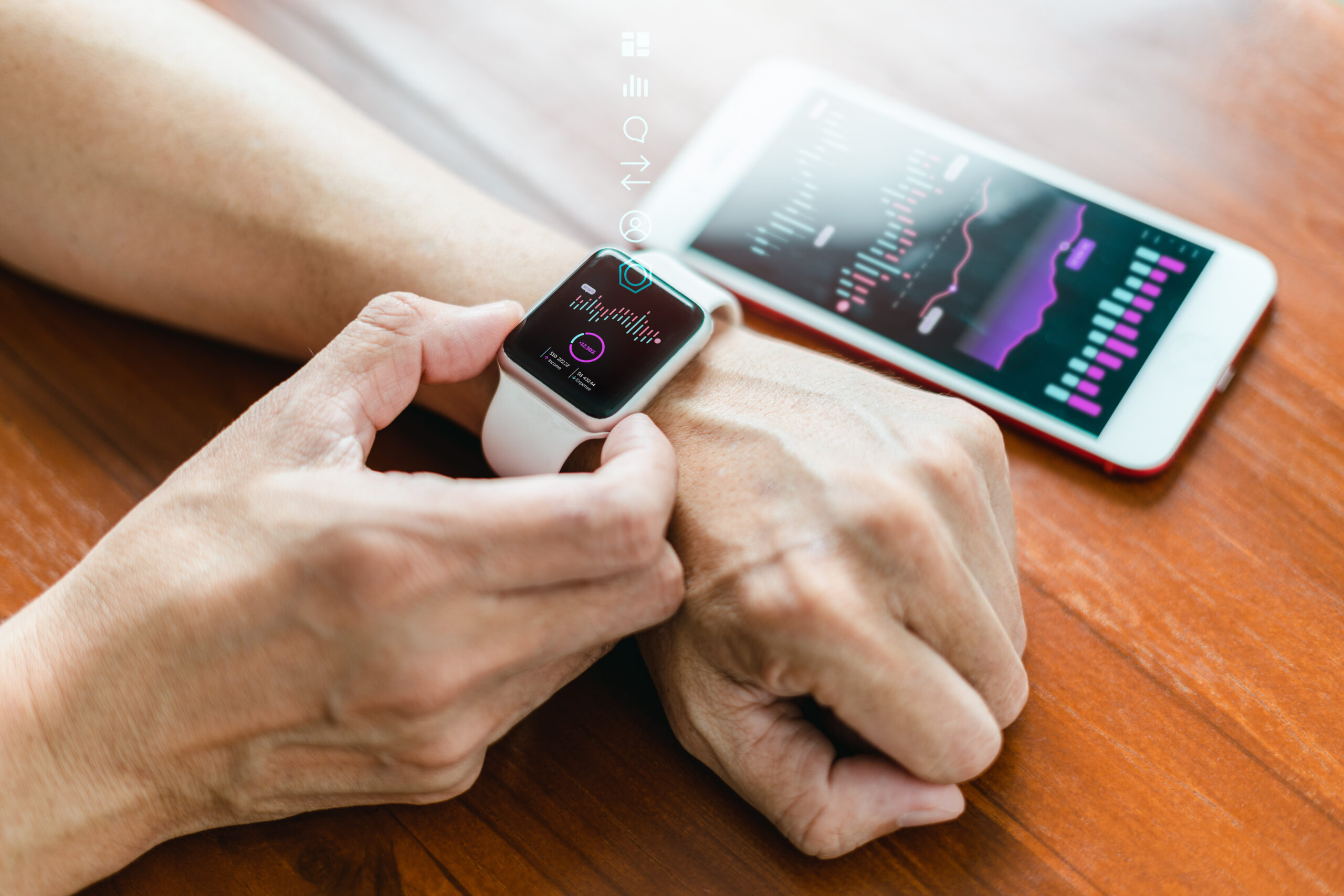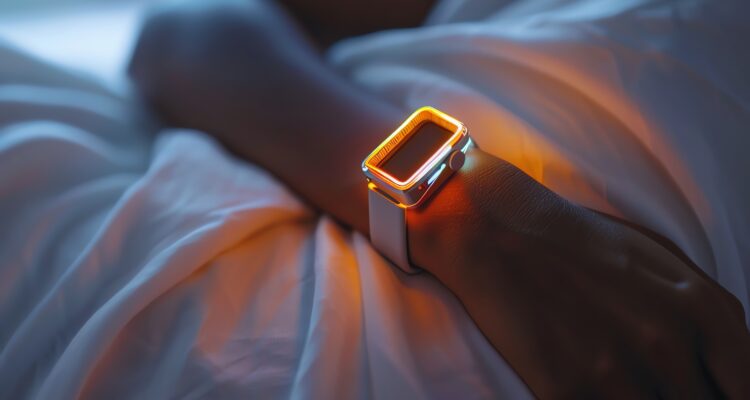Since its launch in the mid 2000’s, wearable technology has transformed the way we monitor our health and fitness.
In the UK, around 35% of the population is expected to own and use wearable devices in 2024 [1].
What is Wearable Technology?
Wearable technology means any electronic devices worn on the body, such as smartwatches, fitness trackers, or smart glasses. These gadgets monitor health stats, track activity and give notifications, making it easy to observe your well-being. ‘Wearables’ are becoming increasingly popular in fitness, healthcare, and everyday life because they offer useful, real-time information.
Wearable technology has come a long way since the early days of basic pedometers and heart rate monitors. Today, devices like the Apple Watch, Fitbit, Pixel and Garmin watches offer a wide range of features including sleep tracking, blood oxygen levels and daily activity.
Going forward, wearable technology will become more convenient, subtle, and accurate. In this blog, we’ll look at the future of wearable tech.
What’s Next in Wearable Technology?
As technology continues to advance, we can expect to see several exciting trends for wearable tech:
- ‘No Needle’ Glucose Monitoring: A Continuous Glucose Monitor (CGM) is a sensor attached to the arm or tummy that tracks glucose levels. These display results on a smartphone or receiver.[1] This technology will allow diabetes patients to digitally monitor their blood sugar without painful finger pricks, making diabetes management more convenient and less painful.
- Sleep Apnoea Detection: Sleep Apnoea monitoring is coming to the apple watch through a new metric that can detect potential breathing disturbances overnight. An app displays results analysing breathing disturbances of moderate to severe sleep apnoea.[2]
- Personalised Health Recommendations: Wearable devices are becoming better at analysing data and providing personalised health recommendations. Using artificial intelligence (AI) and machine learning, devices can offer tailored advice on diet, exercise, and sleep. This can help users achieve their health goals more effectively.
- Integration with Healthcare Systems: Data collected by wearables can be shared with healthcare providers. Wearables could become essential tools for patient monitoring, letting healthcare providers keep track of patients’ vital signs and health metrics in real-time. This trend will be particularly beneficial for managing chronic conditions and providing care to patients in remote areas.

What are the newest wearable devices?
Here are the current smart devices are making waves in the health tracking space:
- Apple Watch: Known for its robust health features, the Apple Watch continues to innovate with new sensors and capabilities. Rumours suggest that the upcoming Apple Watch X will include sensors for sleep apnea and blood pressure monitoring.
- Whoop Strap: The Whoop Strap is a device that focuses on physical performance. It provides detailed insights into recovery, strain, and sleep, making it a favourite among fitness junkies and athletes.
- Samsung Galaxy Watch 5: At the heart of the Watch is a BioActive Sensor, which is This can perform sleep tracking, measure your heart rate, blood pressure and blood oxygen. It can also perform ECG functions and has the ability to monitor your body’s water retention, fat percentage and bone density. It’s an all-round health check from your wrist.
- The Oura Ring: One of the most innovative devices on market right now is the Oura Ring. Worn on your finger, it’s a discreet piece of wearable tech for those who want a device that you’ll forget you’re wearing. It monitors a range of things, including heart rate, body temperature, and sleep patterns, offering detailed insights into their overall health. Apps deliver your results and insights, but you do have to pay a monthly subscription fee.
- Amazfit Helio Ring: For those looking for a budget-friendly option, the Amazfit Helio Ring offers similar health tracking to the Oura ring without the need for a subscription fee.
The future of wearable technology is promising. Developments are being made that will make health tracking more accurate, personalised, and integrated with our daily lives.
As we move forward, these technologies will continue to evolve, providing us with even more powerful tools to live healthier, more informed lives.

Enjoyed reading this? Check out more of our health and wellness blogs here.
Get a car insurance quote today!



